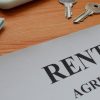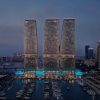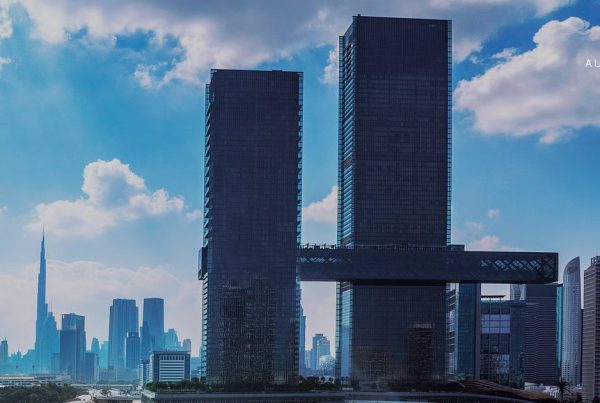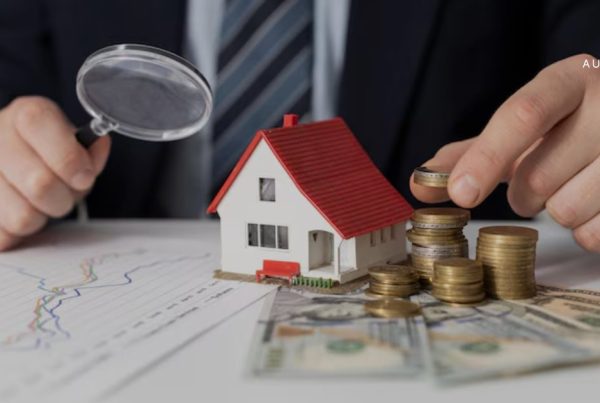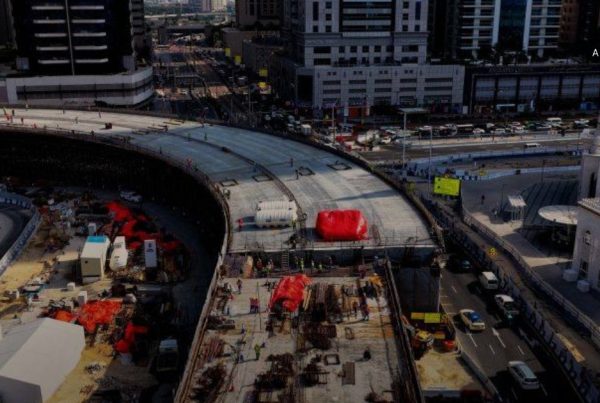Dubai Real Estate Nears AED 500 Billion in Sales, Defying Market Correction Forecasts
Dubai’s property market is showing no signs of slowing down, with transactions in the first nine months of 2025 nearing AED 500 billion. This marks a 33.7% year-on-year increase in value and an 18.5% increase in transaction volume compared to the same period in 2024. According to Harbor Real Estate, Dubai’s fundamentals remain strong, despite global forecasts predicting a potential correction.
Transaction Growth and Market Performance
Between January and September 2025, Dubai recorded over 155,000 transactions, totaling nearly AED 500 billion. Residential unit prices rose 8–10% annually, with slight adjustments in select prime areas. Villas are delivering yields of around 6%, while apartments are achieving as much as 10%, making Dubai one of the most attractive global markets for real estate investment.
Dubai as a Prime Global Destination
The Luxury Housing Report 2025 confirmed Dubai’s growing appeal among high-net-worth individuals (HNWIs). Currently, 1,288 ultra-wealthy individuals (with assets exceeding USD 30 million) own luxury residences in the emirate. Favorable tax policies, branded residential projects, and the Golden Visa program are cementing Dubai’s status as a hub for both investment and long-term residency.
Responding to Correction Forecasts
In May 2025, Fitch Ratings projected a potential 15% correction in Dubai’s residential sector by year-end. However, Dr. Muhannad Al Wadiya, CEO of Harbor Real Estate, dismissed these forecasts as “detached from reality,” citing decades of market resilience. “Narratives may shape perceptions, but numbers and innovation always reveal the truth,” he said.
History of Resilience
Dubai has repeatedly overcome global economic challenges. During the 2008 financial crisis, the city delivered iconic projects such as the Burj Khalifa and Dubai Metro. Amid the COVID-19 pandemic, it successfully hosted Expo 2020, attracting millions of visitors who later returned as investors. These examples highlight Dubai’s ability to turn crises into opportunities for growth.
Ten Drivers of Market Strength
The Harbor report outlined ten factors underpinning Dubai’s market momentum:
- Population growth of 5–6% annually, now exceeding 4 million residents
- Record-breaking transaction activity, with AED 761 billion closed in 2024
- Supportive policies such as the Golden Visa and full foreign ownership
- Urban strategies like Dubai Real Estate Strategy 2033 and Urban Master Plan 2040
- Innovation in real estate tokenization, enabling fractional ownership
- Steady demand for luxury and branded residences
- Emerging districts such as Dubai Creek, Expo City, and Al Jaddaf
- Rental yields surpassing major cities like London and New York
- Improved financial stability, with reduced bank exposure to property
- Large-scale infrastructure projects enhancing connectivity and value
Guidance for Investors
The report encouraged investors to focus on promising submarkets, align with Dubai’s long-term growth strategies, and work with certified advisors. Tokenization was highlighted as a groundbreaking entry point, allowing global investors to access Dubai’s booming real estate market in smaller, regulated denominations.
Conclusion
Forecasts of a 15% market correction appear exaggerated when weighed against the numbers. Dubai continues to thrive, backed by population growth, robust transaction volumes, supportive policies, and innovation-driven resilience. With sales already nearing AED 500 billion in 2025, the emirate reaffirms its position as a global safe haven for real estate investment.



